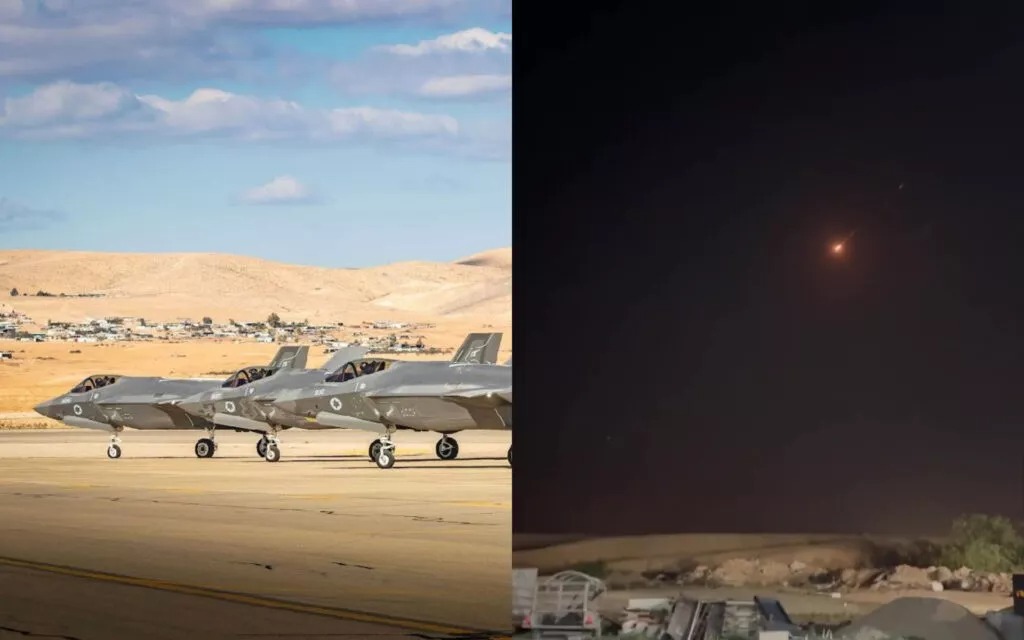It was a natural consequence that Iran would retaliate against the Israeli strike on its diplomatic mission in Damascus. What was uncertain was whether Iran would choose a different tactic from the one it has employed for decades, using its proxy organisations to do its ‘dirty work’. The Iranian attack on Israel and Jerusalem’s response warrants a closer reading.
Beginning with the attack itself, the first notable aspect is that this time, Iran chose to engage directly in conflict. The attack on Israel was carried out by Iran itself (and from bases in Iraq).
The second point to note is Iran’s visible network of proxies that can be activated simultaneously with an Iranian attack. Along with Iran’s launch of missiles and drones, Hezbollah and the Houthis were also activated to carry out their own attacks on Israel.
The targets are a third element to consider. Iran did not attack the Israeli state in a general and undefined manner; it sent drones and missiles to strike specific targets. The direction of the attack seemed to have a very particular focus. The primary target appeared to be the sensitive Nevatim airbase in southern Israel, which houses the state-of-the-art F-35 fighter jets, considered the most advanced in military aircraft. By targeting this base, Iran intended to inflict a purely military blow on Israel, contributing to Tehran’s rhetoric against Jerusalem regarding civilian casualties in Gaza.
Turning now to the Israeli side, there are several factors to take into account. The first and most obvious is the defence against the attack, where 99% of the drones and missiles launched by Iran were intercepted by Israel’s air defence systems. Iran had launched 170 unmanned aerial vehicles, 30 cruise missiles, and 120 ballistic missiles.
The total volume of Iran’s fire against Israel is significant and had they all reached their targets, the damage could have been immense. However, the Israeli air defence systems prevented this from happening and destroyed all projectiles and drones before they entered Israeli airspace.
The second thing to note is the importance of air defence in modern warfare for small countries that may face adversaries with strong air capabilities. While the outcome may seem straightforward, it was not achieved by simply pressing a button but through decades of systematic organisation and planning to counter aerial attacks at all stages.
Much has been said about the drones Iran launched, which took hours to reach their targets, but Tehran also fired ballistic missiles with a flight time of about ten minutes. To intercept these, Israel employed the Arrow 3 system, capable of intercepting missiles at long ranges, and successfully shot down the vast majority of the 120 ballistic missiles fired by Iran. Nonetheless, a few ballistic missiles struck the Nevatim base but caused no significant damage and did not affect the fighter jets, which were airborne from the outset and participated in the interception operations.
The involvement of foreign countries in repelling the Iranian attack on Israel is also significant. Apart from the expected involvement of the Americans and other Western countries, Jordan played a role, disregarding Tehran’s warnings and conducting operations to shoot down any projectiles or drones passing through its airspace.
Beyond the importance of defensive fortifications with suitable means, creating a political umbrella that can open and provide protection, even in the event of a military attack, is equally crucial. This was evident in the case of the Iranian attack on Israel, where the origin of the attack mattered more to all parties involved than the behaviour of the defender (as seen in Gaza).
The Iranian attack is one aspect, and the other is the defensive capability of the attacked state to protect itself. As we have seen, defensive capability operates on two levels. Firstly, a state must create the necessary defensive structures for itself and not rely solely on the goodwill of other countries (such as ‘mother’ nations). Support from other countries should supplement rather than assume primary responsibility for a nation’s defence during an attack, and this was the role played by the United States, Britain, Germany, and France in the Iranian case.
The Iranian attack on Israel offers many political and military lessons, especially for countries like Cyprus. It is up to those in charge and those entrusted with this task to carefully study the data and make the necessary decisions, always bearing in mind that no one will rush to protect another if they are not willing to defend and protect themselves first.
Read more:






